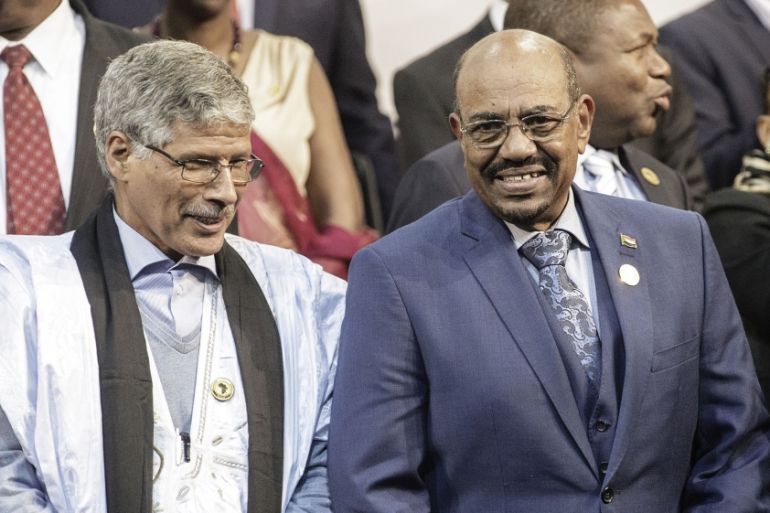Court orders Sudan’s Bashir to remain in South Africa
Sudan president ordered to stay until decision is made whether he should be sent to ICC to stand trial for war crimes.

South Africa’s high court has ordered Sudan’s President Omar al-Bashir to remain in the country until Monday, when it will decide whether to send him to the International Criminal Court.
Bashir, who is accused of war crimes in repressing an armed uprising in the Sudanese region of Darfur, was due to appear in Johannesburg on Sunday for an African Union summit.
Keep reading
list of 4 itemsIt is time for a new Africa beyond borders and boundaries
Addis summit raises questions about AU’s muted stance on Ethiopia rifts
It is high time the AU takes a firm stance against Ethiopia’s aggressions
The Hague-based ICC issued an arrest warrant in 2009, but Bashir denies the charges.
Before the ruling was announced, the judge said the court would decide whether a South African government cabinet decision to host Bashir would trump the ICC arrest warrant.
|
|
Bashir had boarded a flight on Saturday to Johannesburg to head Sudan’s delegation at the summit which starts on Sunday, presidential sources and the state Sudan News Agency said.
The South African Broadcasting Corporation reported that Bashir was later “welcomed by South African officials and Sudanese diplomats on his arrival in the country”.
South Africa is a member of the ICC, which does not have its own police force and relies on member states to detain suspects.
Since the arrest warrant was issued, most of Bashir’s trips abroad have been to non-ICC states such as Saudi Arabia and Egypt.
But he has also been to member states that have declined to arrest him, such as Nigeria, which hosted him in July 2013.
“Allowing President al-Bashir into South Africa without arresting him would be a major stain on South Africa’s reputation on promoting justice for grave crimes,” Elise Keppler, acting international justice director at New-York based advocacy group Human Rights Watch, said in a statement on Friday.
Looming conflict
A South African government spokesperson declined to comment, but the ruling ANC said the ICC was “no longer useful for the purposes for which it was created”, Reuters news agency reported.
Al Jazeera’s Fahmida Miller, reporting from Johannesburg, said the incident showed a looming conflict between South Africa’s courts and its government.
Read more: Africans push UN to call off ‘racist’ court
“The question that remains is whether the court will have teeth in terms of keeping him in the country, because there appears to be a conflict brewing between the cabinet, which made the decision to cooperate with the African Union on granting immunity to sitting heads of states and maintaining obligations to the ICC,” she said.
“At the same time, an arrest by South Africa, any possibility of it, may further tarnish the image of South Africa in the African Union.
“In recent months, a sentiment within the African Union has been growing against the ICC, especially after Kenyan Vice President William Ruto’s and Kenyan President Uhuru Kenyatta’s appearances at the court.”